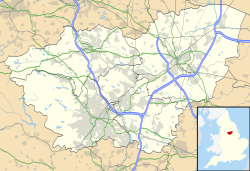| Darton | |
|---|---|
 | |
Location within South Yorkshire | |
| Population | 21,345 (Wards. Darton East + Darton West. 2011) |
| OS grid reference | SE309099 |
| Metropolitan borough | |
| Metropolitan county | |
| Region | |
| Country | England |
| Sovereign state | United Kingdom |
| Post town | BARNSLEY |
| Postcode district | S75 |
| Dialling code | 01226 |
| Police | South Yorkshire |
| Fire | South Yorkshire |
| Ambulance | Yorkshire |
| UK Parliament | |
Darton is a large village in the Metropolitan Borough of Barnsley (part of South Yorkshire), on the border with West Yorkshire, England. At the time of the 2001 UK census, it had a population of 14,927, [1] increasing to 21,345 for both Darton Wards (East & West) at the 2011 Census. [2] [3]
